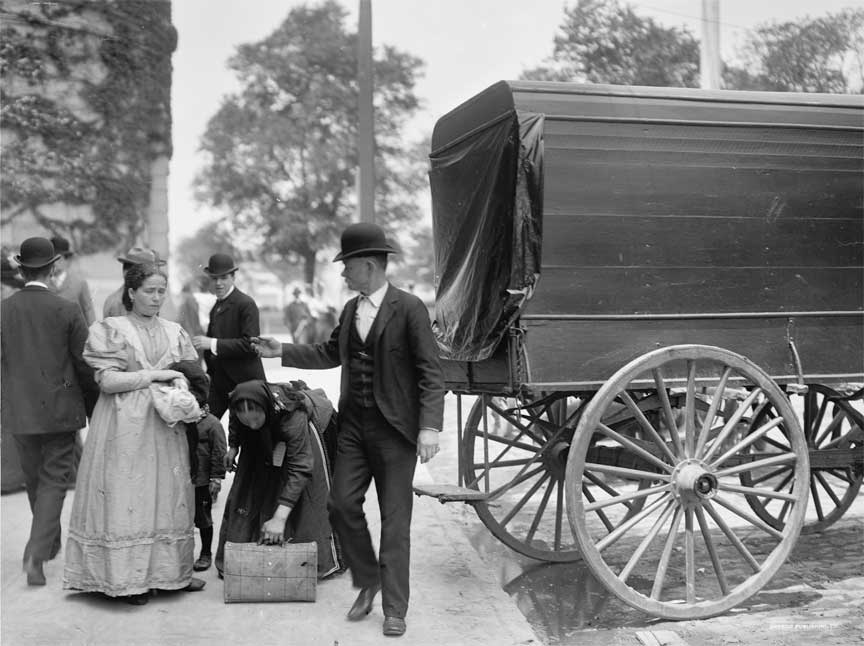1952 Immigration Act

Immigratns in Manhattan
With growing fears of foreigners spawned by the Cold War, Congress passed the most restrictive immigration bill ever. It based quotas on the 1920 census of the American population, limiting entry to those foreigners who had high levels of education, technical skills, or financial assets. President Truman vetoed the bill, stating that it would "intensify the repressive and inhuman aspects of our immigration procedure."
Two days later the Congress overrode the presidential veto.
In the shadow of the Cold War, America's immigration policies were revised. There were two schools of thought, those who thought the US had to change its policies and not only follow the restrictive immigration laws of 1924 which limited immigration primary to Western Europe and those who believed considering the threat of communism that model had to be reaffirmed. Those who wanted to expand immigration thought it was important to show that American values were open to people from throughout the world. They felt that open the borders to a broader group of people would help the US in its fight for the heart and mind of people of the world.
Fear won out over hope, and the Congress passed a new immigration law that reaffirmed the restrictive nature of the 1924 law that limited entry to the United States based on the population of the country in 1880. This resulted in 85 percent of the 154,277 visas available annually were allotted to individuals of northern and western European. The bill also created a system of preferences for people who had skills that were in demand in the United States. Until the passage of the law, there was no way for Asians to gain admittance into the United States, the new bill provided a token number of immigrants from Asian countries.
President Truman vetoed the act on June 25th, 1952 stating that the law would hurt American interests. However the Congress overrode the veto, and it came into effect on one 27, 1952
 >
>